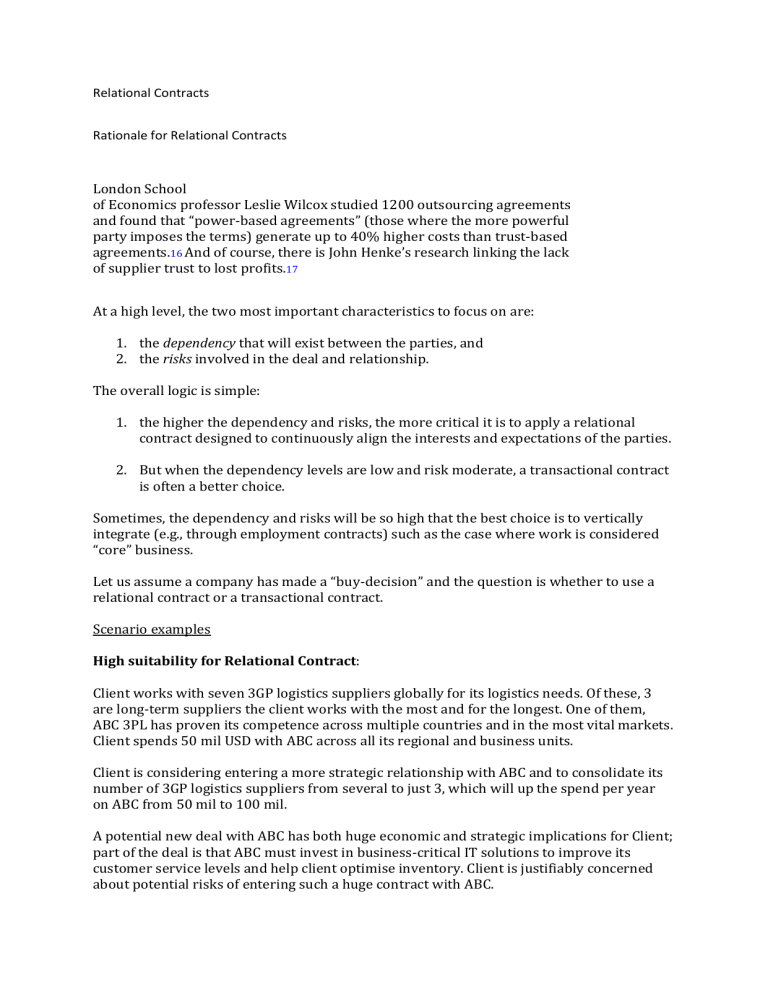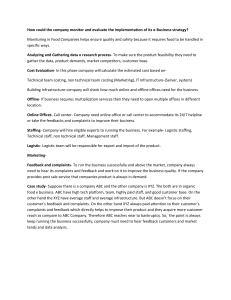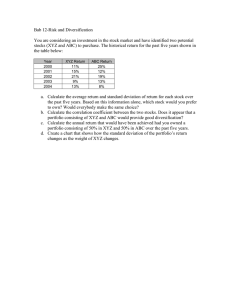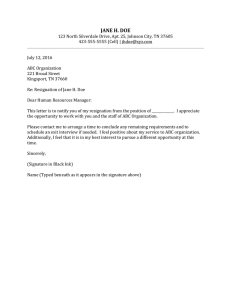
Relational Contracts Rationale for Relational Contracts London School of Economics professor Leslie Wilcox studied 1200 outsourcing agreements and found that “power-based agreements” (those where the more powerful party imposes the terms) generate up to 40% higher costs than trust-based agreements.16 And of course, there is John Henke’s research linking the lack of supplier trust to lost profits.17 At a high level, the two most important characteristics to focus on are: 1. the dependency that will exist between the parties, and 2. the risks involved in the deal and relationship. The overall logic is simple: 1. the higher the dependency and risks, the more critical it is to apply a relational contract designed to continuously align the interests and expectations of the parties. 2. But when the dependency levels are low and risk moderate, a transactional contract is often a better choice. Sometimes, the dependency and risks will be so high that the best choice is to vertically integrate (e.g., through employment contracts) such as the case where work is considered “core” business. Let us assume a company has made a “buy-decision” and the question is whether to use a relational contract or a transactional contract. Scenario examples High suitability for Relational Contract: Client works with seven 3GP logistics suppliers globally for its logistics needs. Of these, 3 are long-term suppliers the client works with the most and for the longest. One of them, ABC 3PL has proven its competence across multiple countries and in the most vital markets. Client spends 50 mil USD with ABC across all its regional and business units. Client is considering entering a more strategic relationship with ABC and to consolidate its number of 3GP logistics suppliers from several to just 3, which will up the spend per year on ABC from 50 mil to 100 mil. A potential new deal with ABC has both huge economic and strategic implications for Client; part of the deal is that ABC must invest in business-critical IT solutions to improve its customer service levels and help client optimise inventory. Client is justifiably concerned about potential risks of entering such a huge contract with ABC. What if ABC fails to deliver its promise of customising its IT systems with the features Client needs; what if parties enter into a dispute. In a deal so big and complex and full of uncertainties it could be very costly for Client to switch to another supplier. Or worse—what if the switching costs are so high Client will be stuck in a bad deal and become the victim of opportunistic “hold-up” behaviors from ABC abusing the dependency to extract value from the relationship through scope changes and annual price increases? This is an example where a traditional transactional approach doesn’t work, and a relational contract is suitable. Low suitability for Relational Contract: Client is a global consumer packaged goods company. It has been slow to outsource, but the VP of Supply Chain wants to test the thought of outsourcing some of its basic warehousing operations as a proof of concept. The VP has approved a pilot to outsource one of Client’s warehouse operations. It has completed market research that shows that there are several reputable contract logistics providers in the city where its main distribution center is. After a competitive bid to see which service providers could meet their requirements at the best price, the winner was XYZ. The scope of work is relatively basic. XYZ will simply store extra pallets for Client and deliver them the next day on a will-call basis when Client places an order before 3 pm. Because it is a pilot, the VP, and general counsel have suggested the contract be limited to a one-year contract with a 30-day termination for convenience. XYZ is keen to get in the door with Client and sees little risk to the short-term contract as they already have the assets available to perform the work. The pilot would provide incremental revenue and help fill up capacity in a warehouse currently only half full. The level of dependency is low, and there is relatively little risk involved for either party. If XYZ does not meet expectations, Client can easily switch to another local contract logistics provider at the end of the pilot. The VP of Supply Chain believes even in the worst-case XYZ can always revert to the way it was working before if the pilot fails since the scope of work is small and it is only for one location. Conclusion Whatever your motive, remember that formal relational contracts are not meant for every type of contract. However, they are especially powerful for highly complex relationships in which it is impossible to predict every what-if scenario. These include complex outsourcing and purchasing arrangements, strategic alliances, joint ventures, franchises, public-private partnerships, major construction projects, and collective bargaining agreements—such as the one between Island Health and SIHI.



